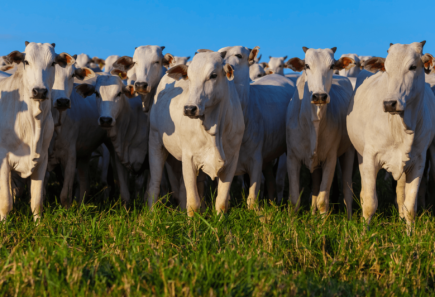
GFIdeas December networking mixer
Join us after the Business of Alt Protein seminar for 1:1 networking.

Join us after the Business of Alt Protein seminar for 1:1 networking.

Learn how GFI is connecting food system change makers around the world

Join GFI and Synonym, a company developing, financing, and building commercial-scale biomanufacturing facilities, to learn about the current state of global fermentation capacity and how productization is the key to unlocking the capital needed to bring more infrastructure online.

Join GFI and Synonym, a company developing, financing, and building commercial-scale biomanufacturing facilities, to learn about the current state of global fermentation capacity and how productization is the key to unlocking the capital needed to bring more infrastructure online.

GFI's Pri Panescu on the environmental benefits of plant-based milks.

GFI Israel's Nir Goldstein shares why Israel has such strong government support for alternative proteins.

Join Professor Carla Molento to learn about Brazilian alternative protein initiatives such as new course offerings, research projects, outreach activities, and powerful partnerships.

Countries are sharing updates on the regulatory frameworks that can help scale the alt protein industry around the world

Food, agriculture, and alternative proteins seized the spotlight at the 2022 United Nations Climate Change Conference in Sharm El-Sheikh, Egypt. Here’s our top 20 (+1 bonus) moments, milestones, and mission-critical next steps.
Join the GlassWall Syndicate for a special virtual event featuring panels and presentations covering the state of the alternative protein industry.